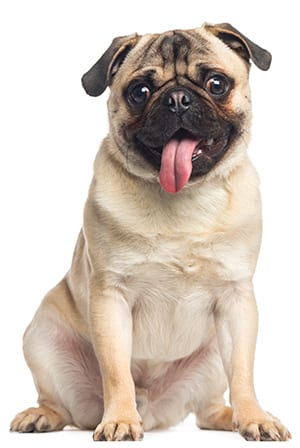
What’s Causing Your Pet’s Bad Breath?

No, “dog breath” isn’t normal. Sure, neither cats nor dogs have fresh, cool mint breaths, but if your pet’s breath smells consistently abnormal, it could be a sign of a much larger problem. Usually, when we think of bad breath, we think of poor oral health—and that certainly could be the cause! When tartar builds up in your pet’s mouth, it makes a perfect home for bacteria, which in turn, contributes to bad breath. Untreated tartar then leads to periodontal disease and causes a lot more issues than bad breath, including bleeding in the gums, cavities, broken teeth, and can even lead to secondary diseases. Yet, while dental problems are a common cause of bad breath, it most certainly isn’t the only thing.

Different Smells Mean Different Things
That’s right, there isn’t just one brand of bad breath. Different smells can indicate a whole range of conditions. These, unfortunately, are not anything you can treat on your own with good teeth brushing. Veterinary care is essential in these cases, so if you notice any of the following smells, make an appointment with us right away!
Sweet/Fruity
Unusually sweet, fruity smells could point toward diabetes.
Ammonia
A smell like ammonia could be a sign of kidney disease.
Foul
A foul odor (typically with vomiting, lack of appetite, and yellow-tinged corneas or gums) could indicate a liver problem.
Other
A different kind of foul odor, without the previously mentioned symptoms, could mean an oral tumor.
Treating Bad Breath
While treating your pet’s bad breath itself is possible, it doesn’t mean it’s treating the actual condition. Bad breath will simply continue to return once the freshening product runs out. The first step of treatment is figuring out what is causing it, which means a trip to the vet. We’ll do an oral exam, run some tests, and pinpoint exactly the cause of it.
If it is dental disease, there are steps you can take to help treat it:
- Brushing daily (if possible)
- Dental chews
- Water additives
- A prescription dental diet
- Dental toys
- Routine veterinary cleaning
Yet, keep in mind that sometimes it’s simply a matter of what your pet eats. Track their eating habits and try to figure out which food is causing their breath to go foul. That way you can avoid it in the future!



